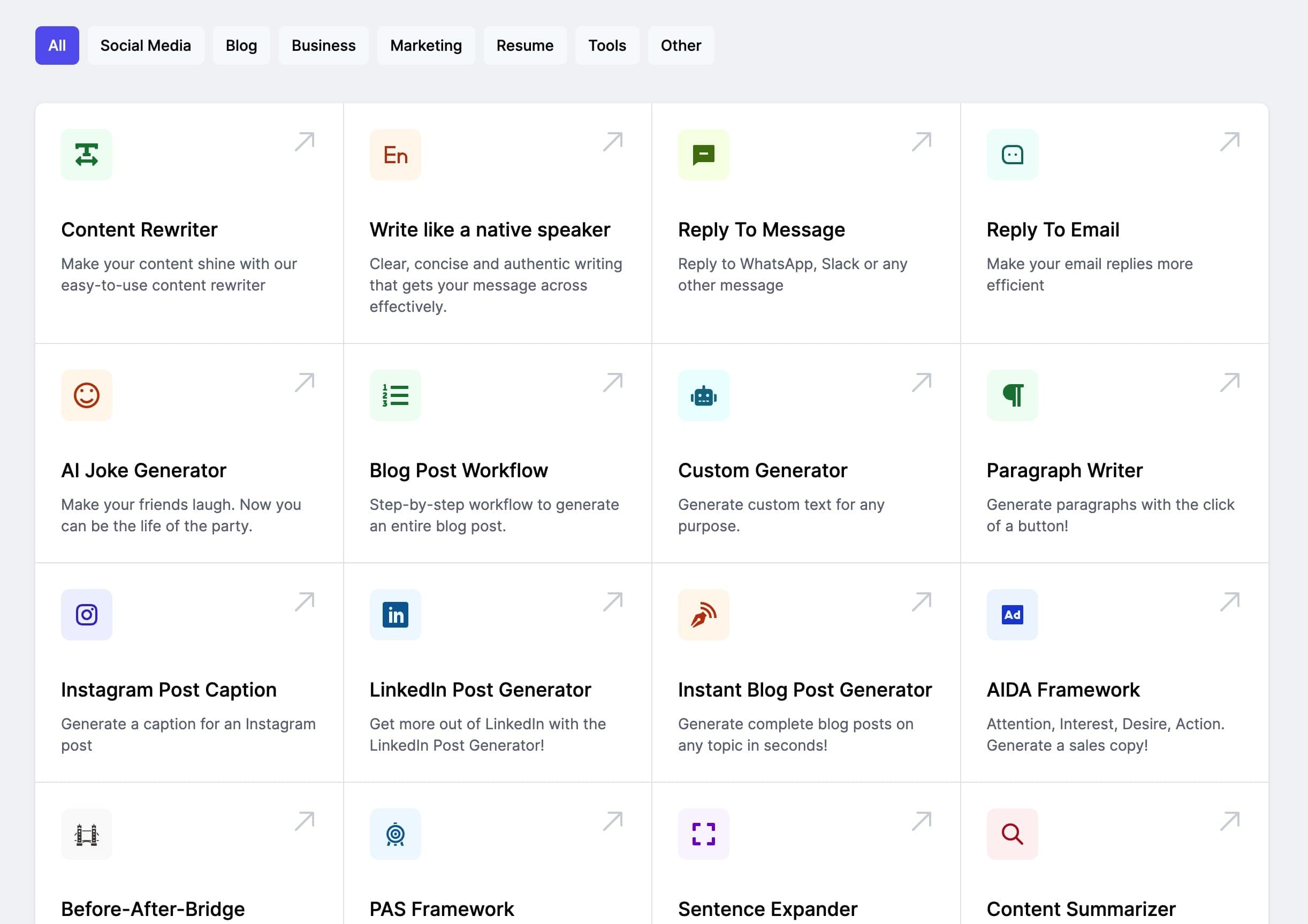ملخص المحتوى
احصل على النقاط الرئيسية لأي نص في جزء من الوقت الذي يستغرقه قراءته
🚀 مدعوم بأفضل نماذج الذكاء الاصطناعي
🌍 يدعم أكثر من 40 لغة
💳 لا حاجة لبطاقة ائتمان
⭐ تقييمات 5 نجوم
وفر ساعات من وقتك
استخدم الذكاء الاصطناعي لتسريع إنشاء المحتوى بشكل كبير
يمكن لأداتنا المدعومة بالذكاء الاصطناعي إنشاء محتوى عالي الجودة ومخصص في ثوانٍ، وليس ساعات. عزز إنتاجيتك وركز على ما يهم حقًا.
من السهل البدء
النص المولد بواسطة الذكاء الاصطناعي
تحقق من هذه القوالب الأخرىSee all →
خطط لمحتواك على وسائل التواصل الاجتماعي للوصول إلى المزيد من الأشخاص وزيادة جمهورك
أنشئ بشكل أسرع مع الذكاء الاصطناعي.
جربه بدون مخاطرة.
توقف عن إضاعة الوقت وابدأ في إنشاء محتوى عالي الجودة على الفور بقوة الذكاء الاصطناعي التوليدي.
